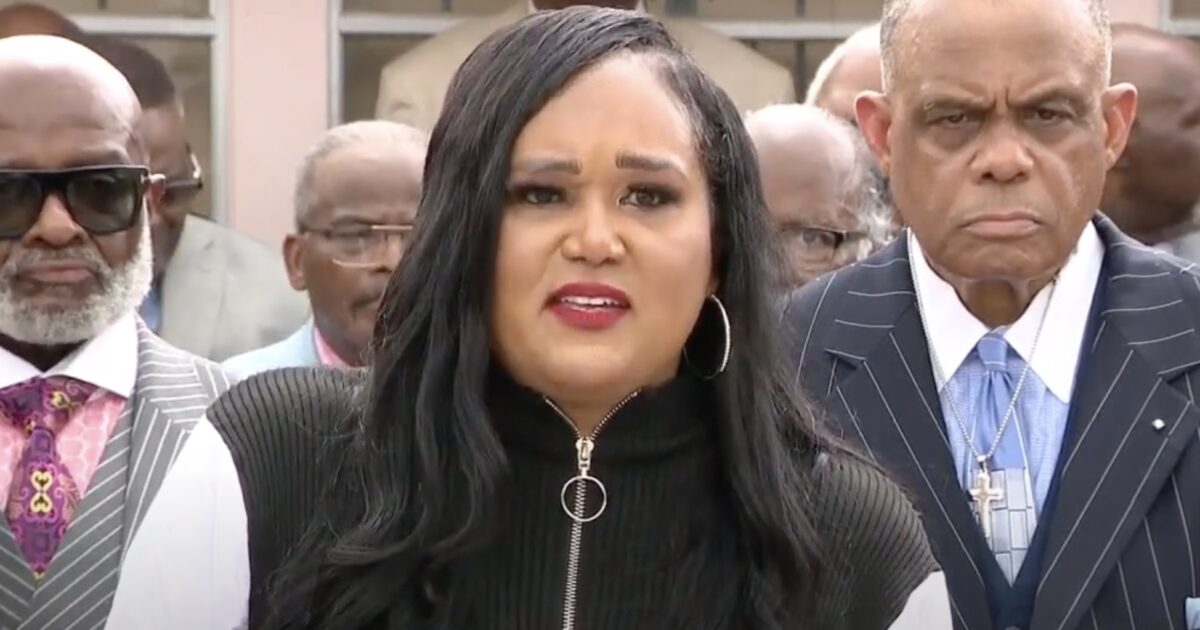In a surprising political shift, Texas State Representative Shawn Thierry announced today that she is leaving the Democratic Party and joining the Republican Party. The announcement, made during a press conference at the Texas State Capitol, has sent ripples through the state’s political landscape.
Representative Thierry, who has served in the Texas House since 2017, represents District 146, a predominantly Democratic area in Houston. Her decision to switch parties comes after what she described as “deep reflection and a recognition that my values and the values of my constituents align more closely with the principles of the Republican Party.”
During her announcement, Thierry emphasized her commitment to addressing issues such as public safety, education, and economic opportunity. “The Democratic Party has increasingly moved away from the concerns that matter most to the people of my district,” she said. “I believe that by joining the Republican Party, I can better serve the needs and aspirations of my constituents.”
Thierry’s defection is a significant development for the Republican Party in Texas, which has been working to expand its reach in urban areas. Texas GOP leaders, including Governor Greg Abbott, welcomed Thierry’s decision. “Representative Thierry’s move underscores the growing diversity and appeal of the Republican Party in Texas,” Abbott said in a statement. “We are thrilled to have her join our efforts to make Texas stronger and safer for all.”
The reaction from Democratic leaders was swift and critical. Texas Democratic Party Chair Gilberto Hinojosa issued a statement expressing disappointment, calling Thierry’s decision “a betrayal of the values and voters who entrusted her with their support.” He also noted that District 146 has been a reliably Democratic stronghold, and pledged to support a Democratic challenger in the next election.
Political analysts are closely watching the implications of Thierry’s switch. While her district has traditionally leaned Democratic, her personal popularity and focus on key issues could make her a formidable candidate in future elections as a Republican.
The move also highlights ongoing shifts within the Texas political landscape, where issues like public safety, border security, and economic development have become increasingly important to voters across party lines. Thierry’s switch may signal a broader trend as both parties grapple with changing demographics and voter priorities in one of the nation’s most politically dynamic states.
As Representative Thierry begins her new chapter with the Republican Party, her decision will likely be a focal point in Texas politics, setting the stage for contentious battles in the upcoming election cycle.
Concerns are growing within the Democratic Party about Vice President Kamala Harris’s ability to secure the presidency. Despite being the incumbent Vice President, many Democrats are increasingly anxious about her electability, especially as former President Donald Trump gains momentum as a populist candidate.
Behind closed doors, some Democratic leaders and strategists are reportedly questioning Harris’s viability as the party’s standard-bearer. While Harris has been a trailblazer as the first female, Black, and South Asian Vice President, her tenure has been marked by mixed reviews and lower-than-expected approval ratings. Critics within the party point to perceived shortcomings in her public communication, policy leadership, and ability to connect with key voter blocs as reasons for concern.
One senior Democratic strategist, who spoke on the condition of anonymity, expressed the growing unease: “There’s a real concern that Kamala Harris, despite her historic achievements, may not be the right candidate to go up against someone like Donald Trump in 2024. The stakes are too high to ignore the warning signs.”
This internal skepticism is compounded by Trump’s continued appeal to a significant portion of the electorate. Despite his ongoing legal battles, Trump remains a formidable force, particularly among white working-class voters and those who feel alienated by the political establishment.

